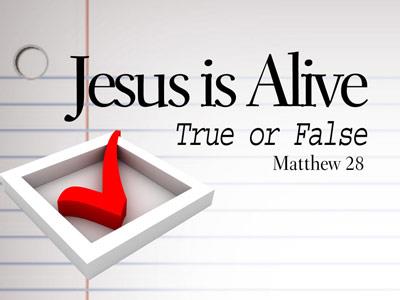-
Reflection Upon Easter
Contributed by Ronald Harbaugh on Nov 28, 2017 (message contributor)
Summary: A sermon for the 7th Sunday of Easter, Series B.
7th Sunday of Easter May 24, 2009 “Series B”
Grace be unto you and peace, from God our Father and from our Lord, Jesus Christ. Amen.
Let us pray: Almighty God, Creator of the universe, we give you thanks that you came among us in the person of your Son, Jesus the Christ, to reveal you grace and truth for our lives, and to redeem us from sin and death. Through the power of your Holy Spirit, open our hearts and minds to the truth of your living Word, inspire us to deepened faith in your incarnate Son, and empower us for witness. This we as in the name of our crucified and risen Lord. Amen.
I believe that our Gospel lesson for this morning is quite fitting, as we bring to a close the season of Easter. This past Thursday was the Day of Ascension, in which our Lord’s first disciples witnessed the crucified and risen Jesus return to his heavenly Father, thus bringing to a close his resurrection appearances. For forty days, Jesus had revealed himself as having risen victoriously over sin and death. The disciples were now on their own, to ponder and try to grasp the significance of what they had experienced.
And if we are to join the first disciples in reflecting upon the significance of what had occurred through the life, death and resurrection of Jesus, I can’t think of a better place to turn, than to our Lord’s high priestly prayer, as recorded in John’s Gospel. This prayer, of which our text is but a snippet, could provide fuel for hundreds of sermons. Yet, as a snippet, I can’t cover it all in one sermon. I have chosen just a few verses.
If the life death and resurrection of Jesus is to be comprehended in faith, we need to truly grasp the significance of verses seven and eight. Here, Jesus prays, “Now they [his disciples] know that everything you have given me is from you; for the words that you gave to me I have given to them, and they have received them and know in truth that I have come from you; and they have believed that you sent me.
As I have often stated, in John’s Gospel, the word “truth” often carries the meaning of “faith” or “faithfulness.” What Jesus is saying here in his prayer for the disciples, is that he has spoken God’s Word to his disciples, and that they have received God’s word in faith. More than this, Jesus says that the disciples have in faith come to understand that Jesus had come from God, and believed that God had sent him.
Herein lies the challenge, according to Dr. William H. Willimon, for the Christian Church in this 22nd century. He says, in two separate articles, and I quote: “From the earliest days, Christians believed that, in Jesus the Christ, they had seen the fullness of God; they had seen as much of God as they ever hoped to see on this earth. They believed Jesus was God, not God as God may be in God’s totality, but as much of God as we mortals hope to see or comprehend.
In the first four centuries the church fought the Christological heresies, in which the great creeds of Christendom were developed. The great heresy, which the church seemed to be fighting in these controversies, was the fact of Jesus’ humanity.
“Was Jesus really a human being?” “Yes!” said the church. He was born of a human mother, he suffered, bled, and died as human beings suffer, bleed and die. As a result, the church claimed that Docetism, the belief that Jesus only appeared to be human, was a heresy.”
Dr. Willimon then concludes his remarks with these words. “Don’t you find it interesting that in our own day our great challenge seems to be to believe that Jesus is divine? Oddly, it has become a threat to modern people to think that Jesus might just possibly be – an inspiring person, a great thinker, a noble human being, one of the greatest prophets – but also God. That which was almost a non-issue in the church of the first several centuries has become hotly contested today. I wonder what that tells us about us?” End quote. [Pulpit Resource, Logos Productions, Inc. 2009]
As we come to the close of the season of Easter, we return to Christmas, and assert that it is not just some humble and noble man who gave his life on the cross for us. We assert the truth of the incarnation, that in Jesus, God was present to us, that the incarnate Son of God, his holy Word that took part in creation, came among us. In Jesus, God revealed himself to us, and offered himself to atone for our sins, that we might have the hope of eternal life. This is not a philosophical principle! Jesus was truly human and truly divine.

 Sermon Central
Sermon Central



